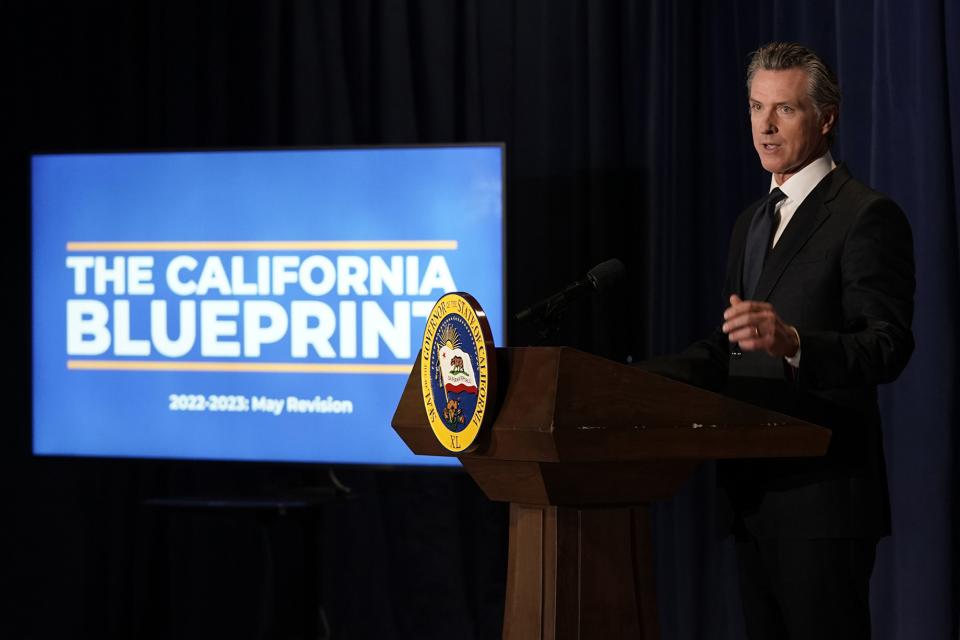Governor Newsom signed six union bills at the end of September that the CFT successfully lobbied in both houses of the Legislature. The CFT had sponsored or co-sponsored 16 legislative bills alongside several budget proposals in the last year of the 2020-22 legislative session. A majority of these priorities made it to the governor’s desk or were included in the state budget, with only one bill being vetoed by the governor.
Additionally, the CFT advocated for extending COVID sick leave and supported labor priorities such as union rights for farmworkers and legislative staff in the State Capitol. The governor’s actions are summarized below.
CFT-SPONSORED BILLS
SIGNED — Restore Compton Community College Personnel Commission
AB 2359 (Gipson, D-Gardena) restores the Compton Community College District Personnel Commission. The commission is an integral part of every merit system district, however, it has unfortunately been rendered dormant ever since the college’s accreditation was threatened in 2006. This bill restores the commission in an advisory capacity upon completion of the repayment of state funds and then restores full legal authority to the commission in the proceeding year.
SIGNED — Classified employees to remain in paid status during appeals
AB 2413 (Carrillo, D-Los Angeles) provides classified employees who have been disciplined at a hearing commonly referred to as the “Skelly Hearing” to remain in paid status while they appeal the decision to the governing board of the district. Employees who, by a preponderance of the evidence, are in clear violation of law, or who have habitual violations of district policy, or who have committed acts that harm students, staff, or property, will not remain in paid status.
SIGNED — Fair repayment plan for wage overpayment
AB 185 (Budget) requires, when an employer has accidentally overpaid wages to notify the employee and create an agreement to repay the overpayments in cash, installments, or adjustments of leave or paid time off.
VETOED — Increased workload cap for part-time faculty in community colleges
AB 1856 (Medina, D-Riverside) would have required that negotiation on employment for part-time, temporary faculty assignments be based on the minimum standards not exceeding 80% to 85% of a full-time equivalent load (expanding from a current cap of 60% to 67%), and would prohibit the community college district from restricting the terms of the negotiated agreement to less than that range unless explicitly agreed upon by an individual part-time, temporary faculty member and the district. The governor’s veto cited cost pressures and a desire to wait-and-see how the increased funding for part-time faculty healthcare would impact this policy.
CO-SPONSORED BILLS
SIGNED — Juneteenth becomes official state holiday
AB 1655 (Jones-Sawyer, D-Los Angeles) adds June 19, known as “Juneteenth, to the list of state and education holidays.
SIGNED — CalSTRS retirees to receive increased supplemental payments
SB 868 (Cortese, D-San Jose) provides additional retirement benefits to retirees in supplemental payments that are meant to keep up with inflation. Retirees from the 1990s will see a 5% increase. Retirees from the 1980s will see a 10% increase. Teachers who retired prior to January 1, 1980, will see a 15% increase. The payments will be made from the CalSTRS Supplemental Benefit Maintenance Account.
SIGNED — Expand counselor duties to include mental health, CTE pathways
AB 2508 (Quick-Silva, D-Fullerton) urges school districts to update the duties of counselors to provide comprehensive educational counseling, with attention to mental health and Career-Technical Education pathways.
BUDGET TRAILER BILLS
Additional policies that CFT advocated for were also included in various budget trailer bills. (Read our full article) In summary, these are:
- A historic win that brought $200 million in ongoing funds to expand healthcare coverage for part-time faculty in the community college. (Learn more about our campaign.)
- an extension of COVID paid sick leave through December 2022,
- expanding the Classified School Employee Summer Assistance Program to include community college staff,
- a refundable tax credit for union dues, and
- various programs to expand green school priorities.
UNFINISHED LEGISLATION
Despite the numerous wins for CFT members this session, there were some unfortunate outcomes for other legislative priorities.
- As noted above, the governor vetoed the CFT-sponsored bill to increase the workload cap for part-time community from 67% to 85%.
- Another bill focusing on part-time faculty, AB 1752 (Santiago, D-Los Angeles), that would have required compensation at the same ratios as full-time faculty, was held by the Appropriations Committee due to cost.
- ACA 8 and AB 2289 combined to bring a wealth tax to California and were forecast to generate over $22 billion in revenue for the state. These bills did not receive a hearing due to the budget surplus.
- AB 2573 (McCarty, D-Sacramento) would have brought permanent employee status for Adult Education, Career Technical Education, and Regional Occupational Center members but was held by the Appropriations Committee for cost concerns.
- CFT also led efforts in the charter school policy area. CFT-sponsored SB 1343 (Leyva, D-Rialto) which would require charter schools to participate in CalSTRS and CalPERS, and co-sponsored AB 2484 (Bonta, D-Oakland) which focused on limiting the exploitation of grant funds to purchase land for charter schools and aimed to keep charter real estate within public control. While these bills did not make it to the governor’s desk, a Joint Legislative Audit was approved to investigate real estate holdings of charter schools and CalSTRS will continue to monitor the impact of charter schools in the pension system for future sponsored legislation.




